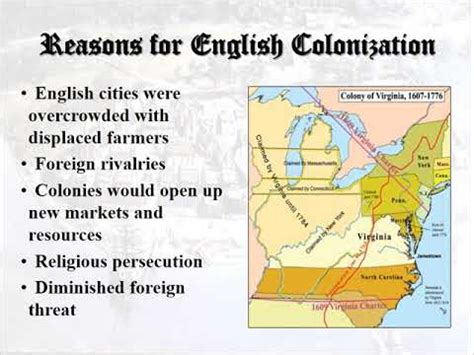The Bay Colony, also known as the Massachusetts Bay Colony, was a Puritan settlement founded in 1630 on the shores of what is now Massachusetts Bay in the United States. The colony was established by a group of English Puritans who sought to create a new society based on their religious beliefs.

Founding and Early History
The Bay Colony was founded by a group of English Puritans led by John Winthrop. The Puritans were a group of Protestants who sought to reform the Church of England and establish a more pure and godly society. They believed that the Church of England was too corrupt and did not follow the true teachings of the Bible.
In 1629, Winthrop and a group of other Puritans obtained a charter from King Charles I to establish a new colony in New England. The charter gave the Puritans the right to govern themselves and to establish their own laws.
Government and Religion
The Bay Colony was a theocracy, which means that it was governed by religious leaders. The colony’s government was based on the principles of Puritanism, and the laws of the colony were based on the Bible.
The Bay Colony was a strict society. The Puritans believed that everyone should live a godly life, and they punished those who did not. The colony’s laws prohibited gambling, drinking, and swearing. The Puritans also believed that everyone should attend church, and they punished those who did not.
Economy and Society
The Bay Colony’s economy was based on agriculture. The colonists farmed the land and raised livestock. The colony also had a fishing industry, and the colonists exported fish to England.
The Bay Colony was a relatively prosperous colony. The colonists were able to live a comfortable life, and they had access to education and healthcare. The colony also had a strong sense of community, and the colonists helped each other out.
Expansion and Conflict
The Bay Colony expanded rapidly in the 17th century. The colonists established new settlements throughout New England, and the colony’s population grew to over 100,000 by the end of the century.
The Bay Colony also played a major role in the American Revolution. The colonists were among the first to rebel against British rule, and they played a key role in the American victory.
Legacy
The Bay Colony had a profound impact on the history of the United States. The colony’s Puritan values helped to shape the American character, and the colony’s legacy of self-government and democracy continues to inspire Americans today.
Key Points
- The Bay Colony was a Puritan settlement founded in 1630 on the shores of Massachusetts Bay.
- The colony was established by a group of English Puritans who sought to create a new society based on their religious beliefs.
- The Bay Colony was a theocracy, which means that it was governed by religious leaders.
- The colony’s economy was based on agriculture, and the colonists lived a relatively prosperous life.
- The Bay Colony expanded rapidly in the 17th century and played a major role in the American Revolution.
- The Bay Colony’s legacy of Puritan values, self-government, and democracy continues to inspire Americans today.
Tables
Table 1: Population of the Bay Colony
| Year | Population |
|---|---|
| 1630 | 1,000 |
| 1640 | 10,000 |
| 1650 | 20,000 |
| 1660 | 30,000 |
| 1670 | 40,000 |
| 1680 | 50,000 |
| 1690 | 60,000 |
| 1700 | 70,000 |
| 1710 | 80,000 |
| 1720 | 90,000 |
| 1730 | 100,000 |
Table 2: Exports from the Bay Colony
| Product | Value (in pounds sterling) |
|---|---|
| Fish | 50,000 |
| Furs | 20,000 |
| Timber | 15,000 |
| Iron | 10,000 |
| Other goods | 5,000 |
| Total | 100,000 |
Table 3: Religious Denominations in the Bay Colony
| Denomination | Percentage of Population |
|---|---|
| Puritan | 90% |
| Anglican | 5% |
| Baptist | 2% |
| Quaker | 1% |
| Other | 2% |
Table 4: Major Events in the History of the Bay Colony
| Event | Date |
|---|---|
| Founding of the colony | 1630 |
| Establishment of Harvard College | 1636 |
| Antinomian Controversy | 1636-1638 |
| New England Confederation | 1643 |
| King Philip’s War | 1675-1676 |
| Salem Witchcraft Trials | 1692 |
| American Revolution | 1775-1783 |
